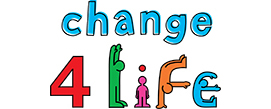Talent selection and talent identification are two terms that often get mixed up and can be seen as the wrong one. Talent selection is the process of placing players based on their current abilities, whereas talent identification is the prediction of future development and performance based on an individual’s current qualities.

Talent Selection VS Talent Identification
Talent selection can be seen as the short term solution, as coaches are focused on the current ability of the team players. They then pick these players to train which will help them to win games. However, this can have consequences, as coaches can lose interest in less abled players, lessening their time of play in favour of more successful players.
However, talent identification is the act of searching for players who may not be the best in the current time, but have the potential to eventually become one. These players may have the motivation to learn and the drive to reach their potential. This in time will benefit the team and make it more successful in the long term.
.jpg)
Identifying talent requires the skill to assess all major elements, such as physical and psychological components of an athlete or player. This process focuses on long term training of a large number of players, giving them all the same opportunity regardless of their abilities.
How to Identify
One way to ensure that you as a coach can talent identify rather than select, is by following a few simple rules that will help your team to be successful. This includes focusing on developing all players with attention to helping those that are less skilled so that they can catch up with stronger players. Coaches should be motivated to develop both better athletes and better people.

Regardless of financial and family background, children should all get the same opportunities to take part in sport and excel at it. Schools and clubs are a great way to do this, by encouraging all children to take part. By giving children the same chance as their peers, it will increase their confidence and also allow better abled players to help the less able to become better. This will also increase social interactions and relationships, further increasing the success of the team.




